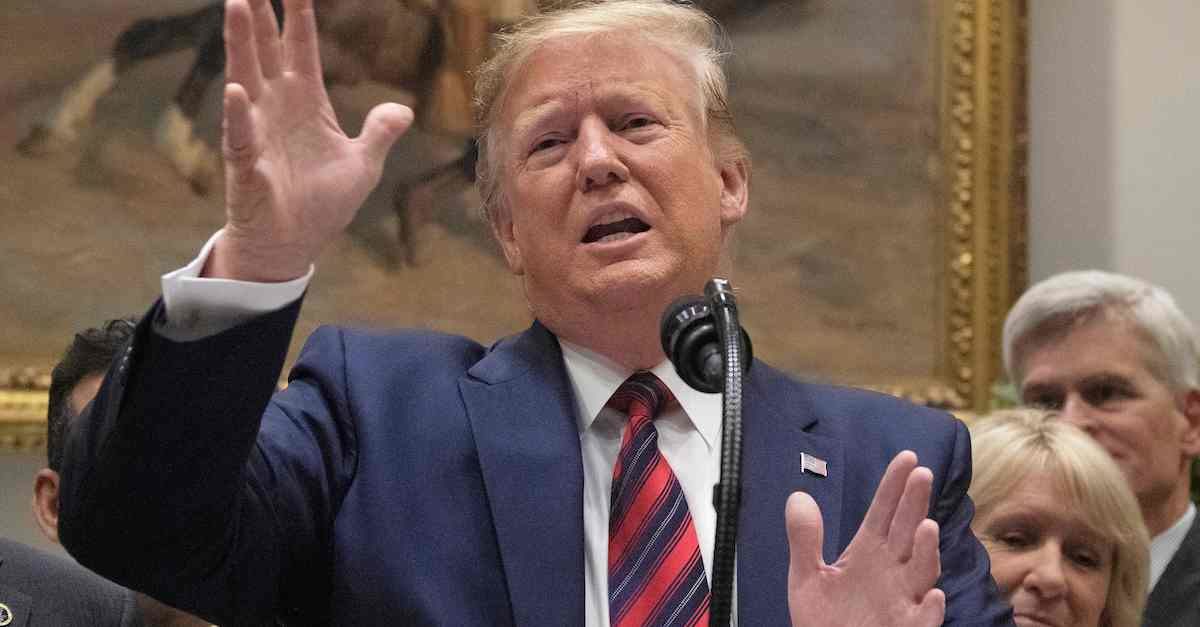
Plaintiffs challenging the Trump administration’s decision to add a citizenship question to the 2020 census revealed new evidence Friday which appears to directly contradict claims made by the administration in its court filing last week.
The challengers filed documents Friday with the U.S. District Judge George J. Hazel illustrating that the recently deceased Republican strategist Thomas Hofeller had been in direct contact with high-level officials at the Census Bureau regarding the addition of a citizenship question.
“These newly discovered documents…eliminate any colorable doubt about the link between Hofeller and government employees involved in the citizenship question approval process,” the challengers’ attorneys wrote in a letter to Hazel.
The citizenship question controversy stems from records released last month by the estate of Thomas Hofeller, a Republican gerrymandering specialist, which purported to show that Hofeller specifically orchestrated the addition of the citizenship census question to achieve Republican electoral advantages.
Hofeller conducted a study on the effects a citizenship question would have on the overall census report, which allegedly became the template for the Trump administration in their decision to add the question. One of the conclusions of the study was that “A switch to the use of citizen voting age population as the redistricting population base for redistricting would be advantageous to Republicans and Non-Hispanic Whites.”
According to the New York Times, Hofeller even assisted in ghostwriting a draft DOJ letter to the Department of Commerce in 2017 requesting a citizenship question as a means of enforcing voting rights and concealing the results his 2015 study, claiming the question would benefit Latinos. Reports claim the letter was then passed to senior DOJ official John Gore before being sent to Commerce (known as the “Gary Letter”).
After being accused of adding a citizenship question in order to create a structural electoral advantage for “Republicans and Non-Hispanic Whites,” attorneys for the Department of Justice submitted a scathing response to the court, claiming the allegation amounted to nothing more than a “conspiracy theory,” so meritless it “borders on frivolous.”
“There is no smoking gun here; only smoke and mirrors,” the wrote, adding that, “In lieu of actual, admissible evidence, Plaintiffs rely on pure speculation to conjure an imagined link between the Hofeller study and the Gary Letter based on supposed “striking similarities” between the two documents. Plaintiffs’ insinuation is false.”
However, emails submitted to the court on Friday demonstrate that Christa Jones, the current chief of staff to bureau director Steven Dillingham, had been emailing with Hofeller as far back as 2010 (Jones used both her government email and personal Hotmail account to email with Hofeller).
In one particular email from 2015, Jones sent Hofeller an email containing a link to a Federal Register notice asking for public comments in advance of testing potential census question changes.
“This can also be an opportunity to mention citizenship as well,” Jones wrote in the email.
A few months later, Hofeller completed the aforementioned study on the effects of the citizenship question.
Kathay Feng, national redistricting director for Common Cause, told the Washington Post Friday that the revelation of the Jones-Hofeller emails are very damaging to the government’s claims.
“Why would she use her personal email? Why would she email a partisan operative about a topic that was not under consideration at the Census Bureau?” Feng said. “The new documents eliminate any doubt about the link between the Republican gerrymandering mastermind and the citizenship question.”
The case is currently before the Supreme Court and expected to be decided by the end of June.
[image via JIM WATSON/AFP/Getty Images]